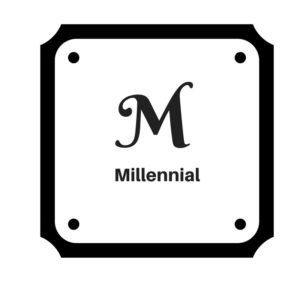One of the highlights of the recent benefit dinner hosted by Our Military Kids was the martial arts performance by OMK Star, Lusious Jayne, age 10.
Weeks before the event, Lusious captured the attention of the OMK staff when his dad, Petty Officer Junior Cho, wrote a letter explaining how the OMK grant had helped his son overcome bullying.
“I was recently deployed,” Petty Officer Cho said at the benefit, “And let me tell you, it’s tough to be miles away when things aren’t going well at home.”
Petty Officer Cho said his wife had phoned him to say Lusious was being bullied by kids three years older than he. When his wife, who was eight months pregnant at the time, tried to have a conversation with one of the older boys, he led her through the neighborhood on a wild goose chase.
“My wife and I had initially thought about using the OMK grant to enroll Lusious in soccer,” Petty Officer Cho said, “but after that incident, we put him into martial arts, and we’re glad we did.”
At the benefit, Petty Officer Cho introduced his son, then proceeded to call out commands for Lusious to follow. The climax of the routine was when Petty Officer Cho held out a board for Lusious to break with his foot. Next up was retired Air Force Gen. Craig McKinley, former Chief of the National Guard. He too held up a board for Lusious to break.
The crowd loved it, not only because of the fun being had on stage, but because of the fact a young boy facing challenges had been empowered by donors making a difference.
By Judy McSpadden
Many children use their grants from Our Military Kids to try something new. Alex, for example, is an OMK grant recipient, who began fencing to feel closer to his deployed father, who had fenced as a teenager. Sammy, the daughter of a National Guard pilot, took up surfing for similar reasons. Remarkably, today, she is a contender in the 2020 Olympics in Japan. Neither Alex nor Sammy had tried their sports before their fathers deployed.
Mariel Mitton, however, is a different story. Her dad, an Army reservist, deployed to Kuwait when she was in high school. Although her three younger siblings weren’t sure what grant activities to try, Mariel had no doubt. Committed to ballet since she was 10, she would continue doing what she loved most.
“I remember when my dad deployed,” she said, “and my mom told us we had been given grant money to pursue something we needed. Dance had been my life – I can’t not dance. It’s that important. But it’s also expensive, and having that grant money made a big difference.”
As many military families know all too well, deployment times can feel like a roller coaster ride. Emotions soar when the skype call comes from overseas. Then they plummet when a child gets sick and his mom is exhausted. When her dad deployed, Mariel was sad to see him go, but thrilled she had the chance to continue her rigorous ballet training. As the roller coaster goes, however, Mariel’s high spirits took a dive during her senior year; she tore her ACL — one of the four main ligaments in the knee – while dancing in ballet class.
“I thought the world was ending,” she said. Philosophically, she added, “But I found that those challenges always happen for a reason; you get stronger from them.”
Since Mariel’s dad was deployed at the time of her injury, he was on active-duty status and eligible for military medical insurance that could pay for her treatment. Mariel was able to heal. She slowly built herself up, attending a university close to her home in North Augusta, South Carolina. While she was rehabilitating, she began teaching ballroom dance at a local studio. There, she met Chris, the man whom she plans to marry in just a few weeks.
“At the time, Chris needed to learn how to dance for a wedding, and I needed students,” she said. “I didn’t tell him this, but he was my first student. That was seven years ago.”
Once married, she and Chris will live in Tennessee, where she is determined to continue to dance, either as part of a dance company or as an instructor.
“I love what the arts do for people. Dance is such a mental and physical challenge; for me, it’s where I feel most alive. But it’s a hard and competitive field. You have to be strong enough to build yourself up because no one else will do it,” she said.
Looking back at her life, Mariel compares herself to her cousins, whose dad is an active duty military member. “Compared to my cousins, I didn’t really feel like a military kid, which is why I felt honored to be given the OMK grant. I thought, ‘Wow, people are grateful for what we’re doing!’ It was cool.”
As to Mariel’s future, “I think, like with military life, you can only see so far ahead with dance, but I do know, wherever I go, dancing will be a core part of my life.”
 By Judy McSpadden
By Judy McSpadden
Millennials – now there’s a term batted around quite a bit these days. Also called “Gen Y” or “Gen Next,” they’re the first generation of digital natives born between 1982 and 2004.
People are attaching all kinds of traits to this group, what one Vanity Fair writer called a “demographic bulge” with a tendency toward selfishness, coddling and even a lack of patriotism.
Those comments make some millennials hot under the collar. They reply with similar jabs at the Baby Boomers. Roger Sterling Jr., blogger for PostGradProblems.com, believes the term, Millennial, is an overused classification “generalizing a generation more overtly diverse than any age group before.”
Whether it’s due to Millennial cultural trends or to something else, OMK’s corporate partners tell us that prospective employees are looking beyond traditional pay and benefits when interviewing for new jobs. They also want evidence of corporate social responsibility — a corporate culture involving volunteering and giving programs.
Corporations can show CSR in various ways: cash donations, in-kind gifts, sponsorships and pro bono services. And then there’s “cause-related marketing,” the collaboration between corporations and nonprofits to boost company sales while helping a charity.
In a way, CRM is a combination of team building and community service.
Consider the people at Capital One in McLean, Virginia. For four years now, they’ve held company golf tournaments to benefit Our Military Kids. They collected items to be raffled. Then employees paid entry fees to play golf and to purchase raffle tickets. The local 2016 tournament raised $24,835, the highest donation amount to date. These golf tournaments are good social gatherings for Capital One and nice money makers for OMK – a real win-win.
A quick Internet search can reveal lists and lists of corporate team-building ideas, from raffles to car washes to casino nights. Team building helps employees build bonds and boost morale. It also builds job skills in communications, conflict resolution and planning.
Lockheed Martin, OMK’s longest running donor, routinely has bike building days in the Spring and Fall. Employees come together from  around the country. While building bikes for military kids, they have a chance to meet up with colleagues at headquarters and from other locations. Another win-win.
around the country. While building bikes for military kids, they have a chance to meet up with colleagues at headquarters and from other locations. Another win-win.
Lids Foundation has partnered with OMK for five years. Currently, Lids employees are voting for their favorite of the top five charities named in their recent social media contest, called “Tip the Hat.” Fortunately, OMK made it to the top five. The winner will be announced on April 11. A peripheral benefit of the Lids-OMK CRM partnership was social media engagement – the increase in followers during a contest. You guessed it – a win-win.
Just as it’s risky to pigeon hole a 25-year-old into a Millennial stereotype, it’s also risky to presume a “one-size-fits-all” CRM event for every corporate-nonprofit partnership.
OMK, for example, is a small office with a national grant program. The children we serve live throughout the nation; they use our grants to participate in activities of their choice. Consequently, an event calling for children to work with employees would not be a good match. OMK gives to kids throughout the country, but it doesn’t have them on “stand-by” for events. On the other hand, a company team-building exercise that raises donations for grants would work well.
The ideal corporate-nonprofit relationship results when each side considers its partner – the partner’s mission, needs and abilities. Then with a bit of flexibility, CRM events can involve fresh teams working (and playing) to cross a variety of boundaries — generational, organizational, and more.

